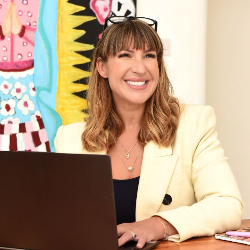Interest rates are going up – what can you do?
Date Posted:Thu, 6th Oct 2022

The current political and economic situation is unsettling for all of us, especially homeowners paying a mortgage. We’ve asked our experts to answer your most asked questions:
Q. I’ve read in the news mortgages are being withdrawn. Will I have to pay back my mortgage?
A. Don’t worry. Although lenders are reviewing their product offering, they are not calling in the debt or changing any existing mortgages. This means, if you have a current mortgage – or have had a mortgage offer accepted – your mortgage will not change.
Q. Interest rates are going up. Will my mortgage go up?
A. You’ll need to check your mortgage details to answer this one.
If you have a ‘fixed rate’ mortgage, your monthly payment will stay the same. It doesn’t matter how high interest rates climb; your monthly payment is fixed for the length of the term. You can find this information in your mortgage offer documentation.
If you have a ‘tracker’ rate mortgage, or are on a ‘variable’ rate mortgage, your monthly payments are likely to increase as the interest rate goes up. Your mortgage company will write to you and let you know what your new payment will be. Please open any letters or emails from your lender – ignoring it won’t make it go away sadly.
Q. I’ve checked my mortgage and the ‘fixed rate’ is due to finish in the next 12 months. Will my mortgage stay the same when the fixed rate ends?
A. Probably not. Most industry experts agree the rate will carry on increasing into next year and mortgage providers are already increasing their rates, especially for new fixed rate mortgages. It’s best to be prepared and expect an increase in your mortgage.
Q. I’m on a variable rate with my bank and I’m worried I won’t be able to afford my mortgage next year. What should I do?
A. Although many lenders have withdrawn products, there are still well over 2,000 different mortgages out in the market. If your mortgage term is coming to an end within the next twelve months, or you are on a variable rate, talk to an independent mortgage adviser as they will be able to find you the best rate on the market. It’s best to talk to an adviser now so you can plan ahead.
Q. I’m currently paying £600 a month for my mortgage. What am I likely to be paying next year?
A. It’s very difficult to answer that without seeing your individual circumstances. However, looking back in time may give you an indication. We recently worked out the following example:
Let's say you have an 'average house', worth an 'average price' of £281,000*, and you put down a 40% deposit when you bought your home, so your mortgage is for £168,000 over 25 years.
In December 2021, a two year fixed rate of 1.99% (on average) would see your monthly repayments of around £718 per month.
Fast forward to September 2022. The same mortgage term, but with a rate of 4%, would see your monthly mortgage payment increase to £899 per month.
An increase of approximately 25% per month!
Q. I am paying for insurance on top of my mortgage. Can I cancel it to save money?
A. Protecting your income with this insurance is a protection for you and your family and this is likely to be even more crucial if living costs continue to rise. How hard would you find it to make ends meet if you unable to work due to serious illness or injury? Protection policies provide valuable peace of mind at what could be a very stressful time.
Think very carefully before cancelling ANY insurance policy.
Q. If my mortgage goes up, how can I afford to pay it?
A. We know most people are prepared to make savings in other areas to keep the roof over their head. Starting sooner rather than later may give you the opportunity to keep a bit aside in readiness or, depending on your mortgage type, pay off a little extra each month to help reduce the long-term interest paid on your mortgage.
There are plenty of articles out there with money saving tips but our favourites are:
• Check your energy suppliers. Some providers, such as Utility Warehouse, include deals for multiple utilities and cash back offers.
• Check your bank statement for any subscriptions or insurances you don’t use anymore and cancel them ASAP!
• Put a spending limit on your cards and set a budget for monthly expenditure. Not many of us stick to budgets but at least you’re keeping an eye on your finances each month.
• Limit the meals out, takeaways and bought lunches or drinks. Batch cooking can also help keep the food bill down.
We are constantly talking to lenders, industry experts and mortgage owners to ensure we know what is happening in the market.











